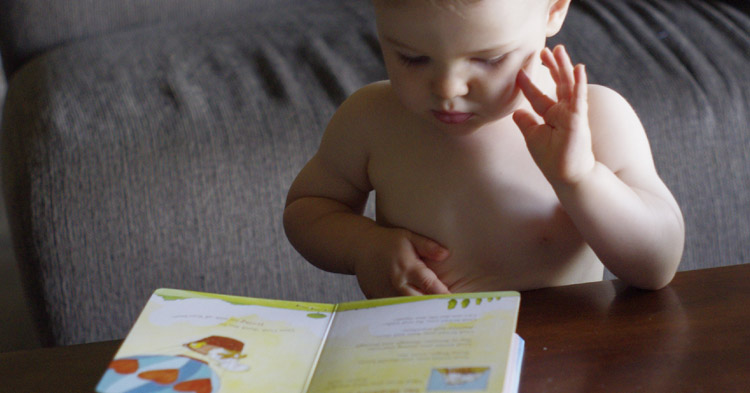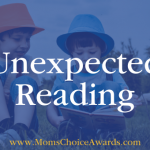 Wendy Hunter, MD
Wendy Hunter, MD
Pediatrician | Mom | Founder of BabyScience.info
Twitter | Facebook
Why bother reading when skipping a page sets off a tantrum and Olivia won’t sit still long enough to conquer even one page?
Listening to a story literally builds kids’ brain cells. Only seconds after reading to a toddler, thousands of cells in their growing brains respond. So you have to read books to help develop well-rounded language skills. In fact, children are exposed to fifty percent more unique words in books than in television shows or even college students’ conversations! Here are a few tips to help you choose good books and maybe keep your child’s attention for a few pages:
1. Don’t Read
You don’t have to read the actual words on the page. According to research, two components of reading are particularly beneficial and don’t involve reading the words at all. Reading experts discovered that describing pictures and actions, and asking questions about the story teach language skills very effectively. So it’s perfectly fine to turn pages, look at pictures together and tell a story about what you see.
2. Rhyme
Rhymes are a great way to develop language skills. Since I rarely speak like Dr. Seuss at home I make it a point to choose rhyming books because the rhythm and repetitive sounds are optimal for developing early language skills like listening and sound recognition.
3. Read the same book
Kids learn new words better when they are familiar with the story. They hear and understand unfamiliar words better each time you run through the book because they aren’t distracted by the action. So don’t resist repeating your kids’ favorite story for the 100th time!
Reading obviously builds vocabulary, but it also develops curiosity and memory and has other positive effects. From elementary school age kids through adulthood, reading literature with engaging characters improves empathy! So, let kids choose books they like. And be a good role model by letting your kids see you take time to read for yourself!
For more information about the research:
Reading aloud to children: the evidence. Arch Dis Child. 2008 Jul;93(7):554-7
This post was originally posted on BabyScience.info.






7 Comments on “New Ways to Think About Reading Time for Kids”
When my children were toddlers i read to them every night and they learned to love to read.Reading opens up a whole new World to them from a young age and it’s so important !
I’ve been reading to my son since he was a baby and now that he’s 3, he can read back to us. I don’t think he can recognize the words but just the pictures. He kind of has memorized the whole story! So, don’t stop reading to your kids. I like to make mine interesting by making sounds and asking him questions of what’s happening in the picture
That’s wonderful, Justin!
My boys love reading, it’s so important to read with your children!!!
That’s great, Tammy! You must have helped them develop some great habits! Thanks for the comment!
Great suggestions. Both our children (2 & 5) love books/reading! We’ve read many favourite books over and over again. It definitely builds vocabulary because as early as 2 – both of them could recite complete paragraphs by memory.
That is great, Cara! Reciting whole paragraphs from memory is impressive! Glad to hear that you read together. Thanks for the comment!